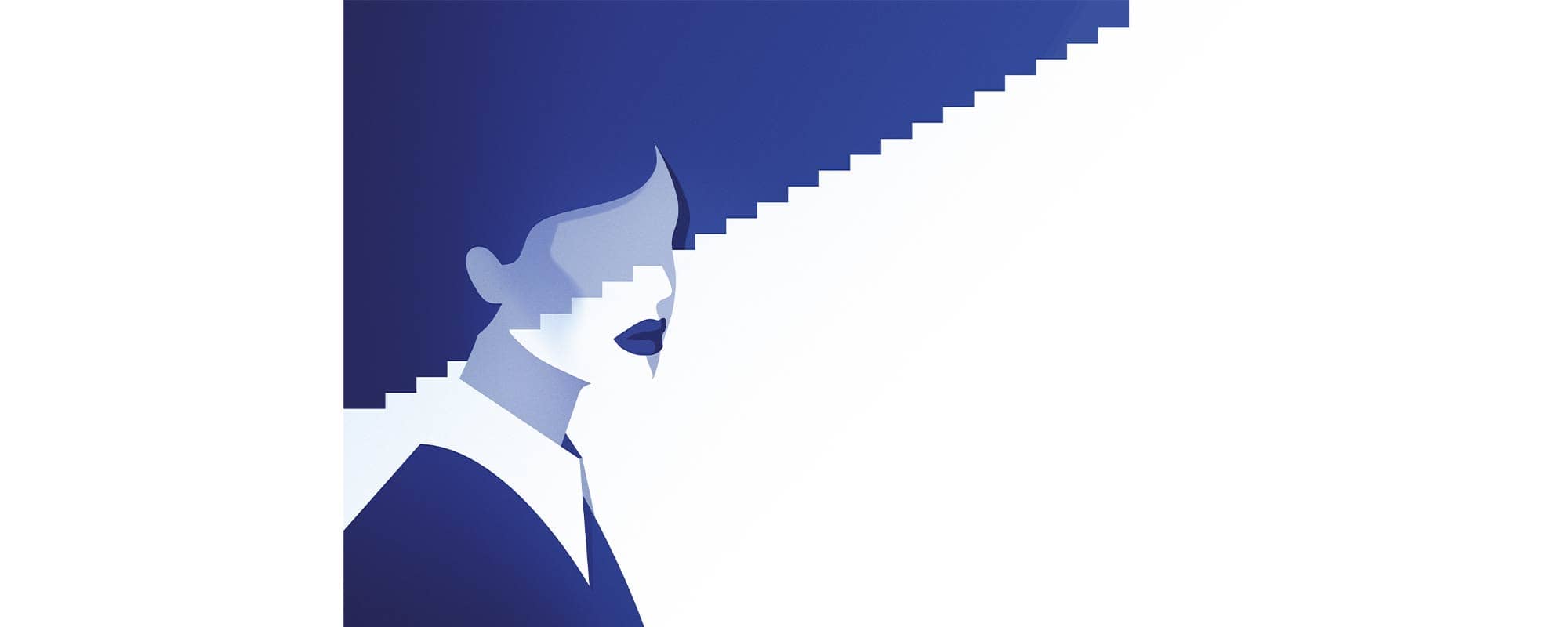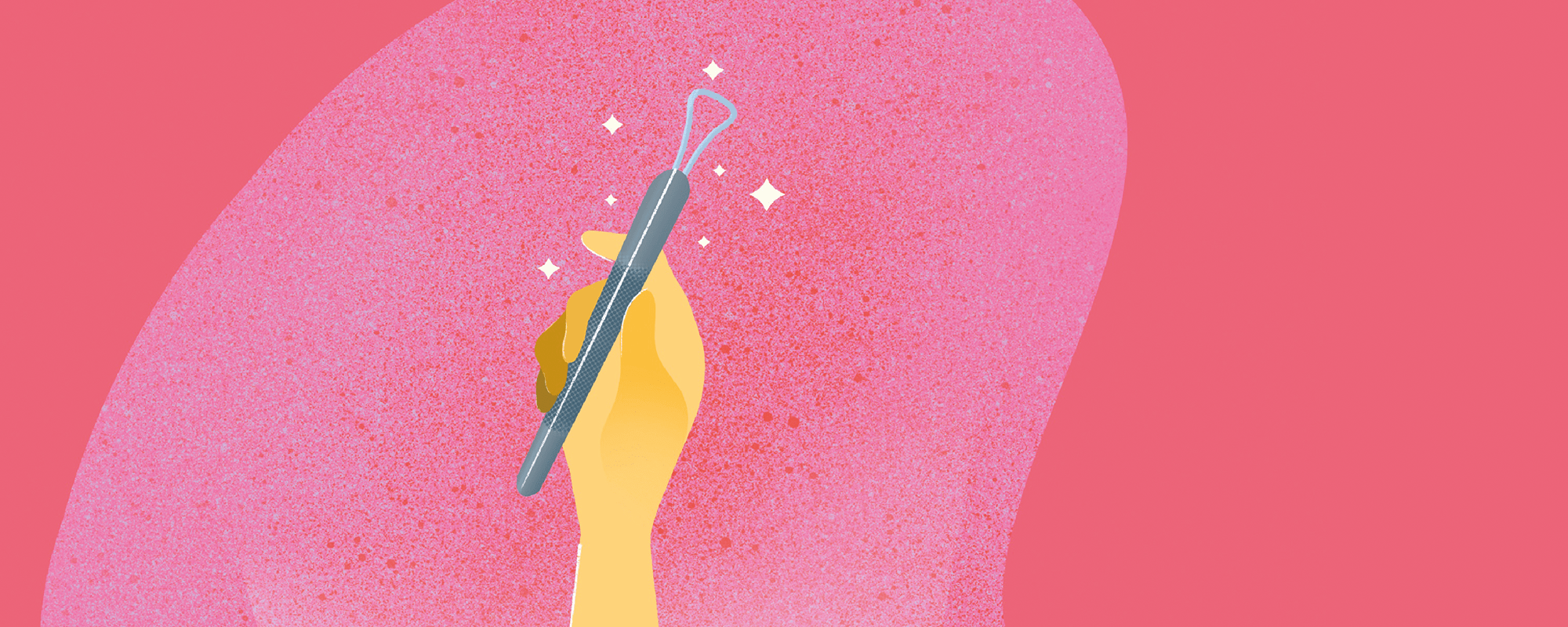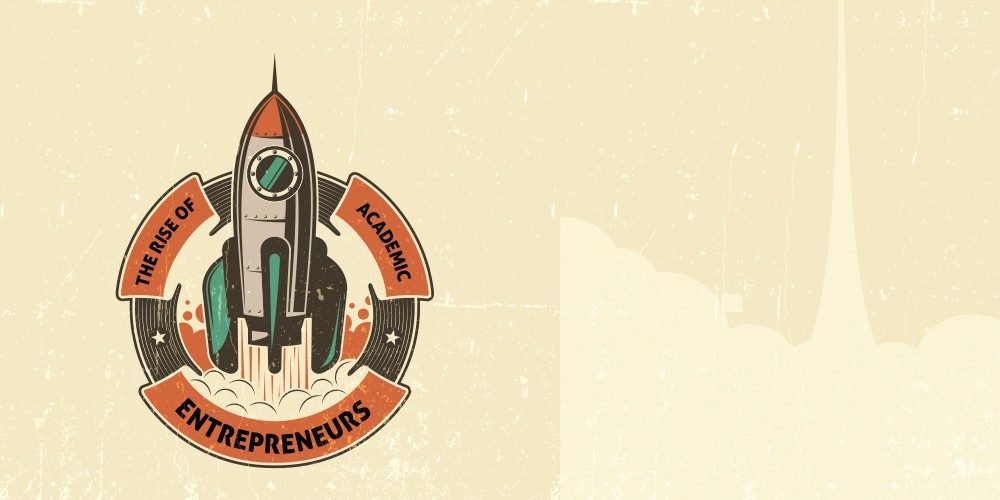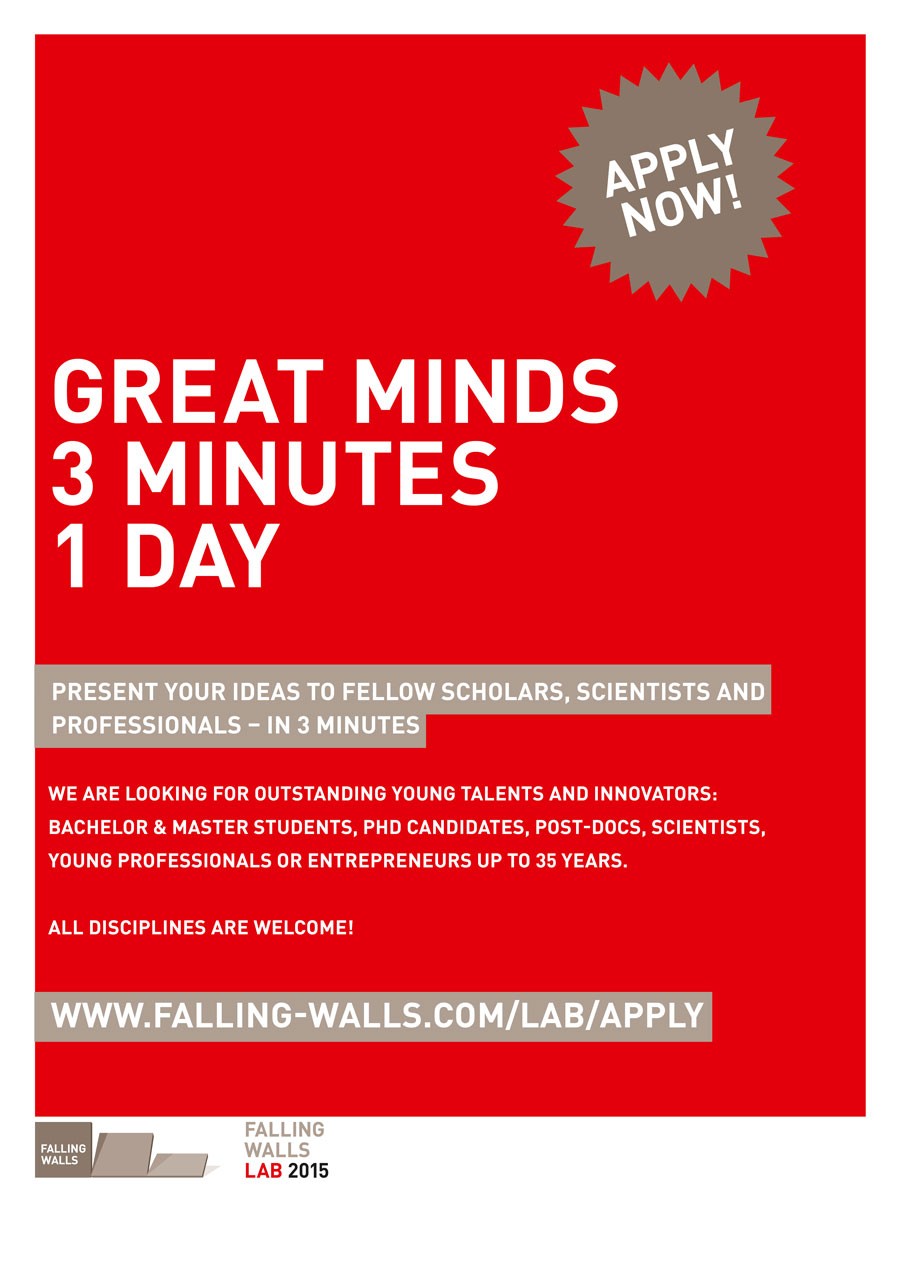Can women climb the academic ladder? In a society that equates men with leadership, THINK explores the career challenges faced by women, especially in academia, and how governments and institutions are fighting to promote gender equity.
Continue readingIs ChatGPT an Aid or a Cheat?
From the perspective of a student and an academic, how can ChatGPT be used in academia? Nathanael Schembri explores how the AI could be used to aid in assessments as well as scholarly work; such as in writing dissertations and research papers.
Continue readingBusting out of the box
Aesthetic physician and artistic consultant Dr Joanna Delia traces her journey from medical student to successful business owner, telling Teodor Reljić that her experience at the University of Malta helped her resist excessive industry specialisation.
Modern life is rigidly compartmentalised. Perhaps this is more true of the West than anywhere else, where the materialist, rationalist models that have aided efficiency and technological advancement also require us to absorb vast amounts of knowledge early on, and specialise later.
Many educational systems reflect this tendency and the Maltese model is no exception. From a very young age, exams come in thick and fast, and cramming to pass them replaces a more holistic education.
Dr Joanna Delia is not a fan of the word ‘holistic’—preferring the term ‘polyhedral’ for reasons that will be explained later—and has enjoyed a career trajectory that has flouted excessive specialisation. A doctor turned aesthetic physician with an interest in the world of contemporary art, Delia’s journey is an affront to such restrictive notions.

While she assures me that her own time at the University of Malta (UM) was nothing short of amazing, in recounting the roots of her intellectual curiosity, she is compelled to go even further back.
‘Like every excited little girl, my dreams used to alternate and metamorph somewhere between wanting to be a writer like Emily Brontë or Virginia Woolf and a scientist who would make incredible discoveries and change the world like Marie Curie,’ Delia recalls. ‘I also wanted to be a doctor who would cure people in war-torn countries, yet fantasised about being Alma Mahler or a young Chanel surrounded by philosophers, drenched in fine clothes and surrounded by white rose bouquets…’
Delia recounts this awareness that we’re shaped to view these inclinations as contradictory. But for her, the intuitive desire to learn about and closely observe scientific phenomena matched the heights of aesthetic appreciation.
Vella’s own student enthusiasm did not come as immediately as all that, however. While she is now secure in her three-pronged role as writer, performer, and translator (also acknowledging her former role as a lecturer), forging an early path as a student meant first squinting through the fog.
‘I just loved learning the science subjects… figuring out protein synthesis and DNA replication literally made me feel giddy, light headed, downright euphoric! I was a real geek,’ Delia says with disarming self-deprecation. ‘To me, it was just the same as reading an incredible work of literature or staring at a work of contemporary art alone in one of the silent, perfectly lit halls of a museum.’
Given this internal push-pull across various disciplines, Delia confesses that in terms of pursuing the later strands of her formal education, she ‘floated into medical school’ without feeling the need to strategise things much further. It was only upon graduation that the realities of being slotted into a specialised discipline dawned on her with an ominous pall.
‘The day I graduated I felt a suffocating feeling: the thought that I had somehow sealed my fate,’ Delia says, though the sense of regret which followed did not linger for much longer.
‘Looking at one’s future through a tunnel vision perspective based on the imaginary restrictions of one’s degree is just that a self-imposed illusion,’ Delia observes.
Her University years were active and inspiring, with Delia having happily taken on extra-curricular activities and also quietly rebelled against the notion of boxed-in specialised disciplines.
University and beyond
‘University was amazing! I would repeat those years ten times over,’ Delia unapologetically enthuses. Though she does acknowledge that the Medicine course was challenging to begin with—citing the ‘competition among students’ as an additional factor—she looks back on both her time there, and her association with the UM’s Medical School, with immense pride.
‘My lecturers were charismatic and experts in their field, which of course garners respect and made us feel honoured to be part of that system,’ Delia says, while also recalling her involvement in additional campus activities.
‘I was the chair of the environmental committee at KSU and served two terms as the Officer for the Sub-Committee on Refugees and Peace within MMSA. I loved my time on campus, and encourage all students to participate in campus affairs. We never stopped organising fairs, events, fundraisers, workshops, and outreach programmes with the community…’

Hinting at an essential discomfort with the idea of overbearing specialisation, Delia believes ‘the Maltese education system does not proactively encourage sharing knowledge’, but also notes that she did find hope, solidarity, and inspiration among her peers, from various faculties.’ I socialised with students from the architecture department, and attended their workshop parties. I was invited to history of art lectures and tours. I organised panel discussions to reduce car [use] on campus and lobby for [a] paperless [campus],’ Delia says. All these activities contributed to ‘a feeling of a hopeful future’.
Adjacent to Delia’s academic efforts were her course-related travels abroad, which contributed to expanding her horizons. ‘I did internships in Rio De Janeiro and travelled to India and Nepal through the Malta Medical Students’ Association (MMSA), both of which were incredible experiences.’ During this time, she gained a keener interest in art.
‘My sister was studying history of art and eventually read for a Ph.D. in Museology. I followed her as closely as I could; her subjects fascinated me and a lot of her excitement about art rubbed off on me…’
But first, her early medical career needed seeing to. Delia admits that medical students in Malta are somewhat privileged since they enjoy a relatively smooth changeover from academic to professional life. However, the change happens very rapidly.
‘Young doctors in Malta have the advantage of an almost flawless transition into a job. This also turns out to be the toughest time in your life, but at least there there is a continuity of support at the start of your profession,’ Delia says, citing the diligence and discipline instilled into her and her peers by their University tutors and lecturers. This rigour was crucial to ensure that those early years went on as smoothly as possible.
Pausing to reflect, Delia feels compelled to add that a culture that leaves more breathing room for exploration and enquiry could only be beneficial for the future of Maltese medicine. ‘I wish we had a stronger culture of research and publication in Malta. We need to somehow find time for it as it will not only improve the reputation of the institution but also nurture us as students, alumni, and professionals, and keep us on our toes,’ Delia says, adding that these ideas reflect the same culture of hard work that her course promoted, which rewards diligence and depth. ‘I believe in constantly keeping astride with knowledge by reading publications and actively pursuing ‘continued medical education’. I wish that the institution instilled more of this into its alumni,’ Delia muses.
This approach of constant enquiry arguably gave Delia a fount of knowledge and inspiration to draw from when she found herself at a forking road in her medical career.
Expanding horizons
”After a few years of working at the general hospital, I was lucky enough to be chosen to pursue some level of surgical training, but by that point I had realised that the life of a surgeon was not for me…’
This was an ‘extremely tough decision’, with regret once again raising its ugly head. ‘However, the 80-hour weeks, and above all the realisation that my professional life would be all about facing and treating ill and dying people, forced me to make a decision to leave the hospital,’ Delia says.
This pushed Delia to explore other careers, and she now juggles her love of both medicine and aesthetics in a sustainable way.
‘After I stopped working as a hospital doctor, there were too many things I was hungry to explore – one of them was medical aesthetics. I started pursuing training in London and Paris, and essentially spent years of salary training with the best doctors I could find.’

After working at a reputable local clinic, Delia finally managed to go at it independently, opening up her own place.
‘It was nothing short of a dream come true. I had to search hard within myself and build up entrepreneurial and management skills. I learnt the hard way sometimes, business-wise, but I was also fortunate to find help from my friends who excel in other fields like marketing, photography and architecture, to help me build my brand and clinic,’ Delia recalls.
In the end, her resistance to rigid specialisation helped her to open a thriving business called Med-Aesthetic Clinic People & Skin. She couples this work to her position as head of the Advisory Board at the newly-opened Valletta Contemporary, a boutique showcase for local and international contemporary art run by artist and architect Norbert Francis Attard.
Which brings her story back to a ‘polyhedral’ conception of the world.
‘I believe everything in life is polyhedral. I prefer polyhedral to ‘holistic’. Every square, or rather, every cube we think we’re trapped in, can be pushed out and reconfigured to welcome other disciplines. I don’t believe any of us purposely split the two fields, but I believe we don’t allocate enough time to explore all the wonders we could discover if we used both their lenses to analyse the world. After all, even Einstein believed that the most important thing in science is creativity…’
The rise of the academic entrepreneur
What is it that separates innovation in the lab from successful multi-million euro ventures that make money and have a positive impact on the world? The Knowledge Transfer Office’s Andras Havasi writes.
Continue readingMind the Gap
The world is changing. Technologies are developing rapidly as research feeds the accelerating progress of civilisation. As a result, the job market is reacting and evolving. The question is: Are people adapting fast enough to keep up? Words by Giulia Buhagiar and Cassi Camilleri.
Mur studja ha tilħaq.’ (Study for a successful future.)
From an early age, most Maltese students are conditioned to think this way. You need a ‘proper education’ to land yourself a ‘good job’. But students graduate, and with freshly printed degrees in hand, they head into the job market only to be disappointed when the role they land seems unrelated to their degree. Yet vacancies are ready for the taking; there are many unfilled jobs in the STEM fields, which create 26% of all new vacancies according to recent research from the National Statistics Office.
So, if there are vacancies available, what is the problem? A skills gap.

Academic qualifications do not guarantee that graduates have the right skills for work. At a conference addressing the skills gap organised by the Malta University Holding Company (MUHC) and the Malta Business Bureau (MBB), Altaro Software co-founder and CEO David Vella confirmed this problem. In previous years, Altaro mostly employed experienced developers; however, increased demand led them to realise that there weren’t enough of these candidates out there for them.
To fill those roles, they extended the call to younger people, but Vella found that they were not fully equipped and ready to go. This was when he realised that they needed to change tactics. ‘Now we realise that we need to start hiring junior people and build up their skills.’ Investment needs to be made by both sides.’
What every relationship needs
Better communication between business and academia could improve the skills gap. However, this kind of engagement is easier to manage in some institutions and industries than others, and bringing those worlds together poses many challenges. At the same conference, MUHC CEO Joe Azzopardi noted how start-ups and small businesses often do not have the resources to organise such exchanges. The wall between them and students is a difficult one to get over. However, there is a new initiative seeking to remedy this situation.
Go&Learn is a project bridging education and industry through an online platform that effectively catalogues training seminars and company visits in a multitude of sectors, for students and educators alike. The initiative has garnered a slew of supporters. Sixty companies from all over the world are listed on the site, including some local names: Thought3D, ZAAR, and Contribute Water, to name a few. This year was Go&Learn’s third edition, and with 17 European regions from across 10 countries involved, it focused on the STEM fields. In Malta, the team behind Go&Learn, also a collaboration between MUHC and the MBB, have worked together to create two new programmes.
One was dedicated to ICT for business, leisure, and commodity. It saw students visit and learn from local companies Altaro, Scope, MightyBox, Trilith, and Flat Number. Students said that the visits helped them achieve a better understanding of the sector and its nuances. ‘For us students, the fact that we are exposed to the internal working of a business’s environment, it’s an eye-opener,’ said University of Malta (UM) student Maria Cutajar. The second was related to food, involving Elty food, Benna, Fifth Flavour, Da Vinci Pasticceria, and Contribute Water. In this case, the opportunity even attracted foreign students. Go&Learn is acting as a vital bridge between education and industry that can help to minimise the skills gap.
The skills gap exists for many reasons: prejudices towards certain industries, lack of information available on others, and much more. However, education can play an important part in fixing this problem.
Bringing STEM to life
The skills gap exists for many reasons: prejudices towards certain industries, lack of information available on others, and much more. However, education can play an important part in fixing this problem. Currently, local systems are falling short of reacting quickly and addressing new needs in industry. A lot of attention is placed on short-term goals such as exams and assignments, rather than the bigger picture and real-world tasks. This kind of attitude in science education tends to be exacerbated by the notion that its subjects are for ‘nerds’ and ‘brainiacs’. This can be a daunting prospect for young children who don’t see themselves as ‘smart enough’. It can drive lots of young talent away from STEM subjects.
 We need to bring fresh talent into STEM by showing how exciting, accessible, and relevant the field actually is. The solution, UM Rector Prof. Alfred Vella says, is to start right at the beginning: ‘We need to inspire teachers.’ This includes attracting the best teachers by providing appropriate salaries. Through education, we need to change the impressions given to children about science and what it means. ‘When I was younger, they used to tell me, why do you want to do science? Wouldn’t it be better to be a doctor? Engineers were seen more as grease monkeys,’ Vella said with a smile. Science should be engaging, inspiring, and fun. For this reason, he commends ESPLORA as being ‘the single most important feature in Malta.’ Vella believes classrooms should be an extension of the ESPLORA centre in their efforts to bring science to life. In addition to teachers inspiring future generations, parents also need to see STEM jobs as a good career for their children, and businesses need to show parents that exciting careers are available by pursuing STEM subjects. Without this, early encouragement might be fruitless.
We need to bring fresh talent into STEM by showing how exciting, accessible, and relevant the field actually is. The solution, UM Rector Prof. Alfred Vella says, is to start right at the beginning: ‘We need to inspire teachers.’ This includes attracting the best teachers by providing appropriate salaries. Through education, we need to change the impressions given to children about science and what it means. ‘When I was younger, they used to tell me, why do you want to do science? Wouldn’t it be better to be a doctor? Engineers were seen more as grease monkeys,’ Vella said with a smile. Science should be engaging, inspiring, and fun. For this reason, he commends ESPLORA as being ‘the single most important feature in Malta.’ Vella believes classrooms should be an extension of the ESPLORA centre in their efforts to bring science to life. In addition to teachers inspiring future generations, parents also need to see STEM jobs as a good career for their children, and businesses need to show parents that exciting careers are available by pursuing STEM subjects. Without this, early encouragement might be fruitless.
With more young people taking up STEM subjects, the potential ripple effect will be vast. These future professionals will be able to conduct more research. The enormous benefits to be reaped from having more people excited about STEM subjects means the burden does not fall solely at the feet of teachers and parents. ‘It is also the job of businesses to show the relevance and benefits of STEM,’ says the CEO of the MBB, Joe Tanti. Go&Learn is providing an arena for business to interact with students and for universities to use their influence positively.
Looking ahead
From children’s classrooms to the skills gap in our economy, everything is intertwined. We need a multi-pronged approach to tackle as many aspects as possible and implement lasting changes. For one thing, we need to take a good look at our education system and how it treats STEM subjects. We also need to bring business and education together, enabling them to communicate more effectively. With Go&Learn starting this much-needed shift, the door is open to more innovative initiatives. Who’s in?
Authors: Giulia Buhagiar and Cassi Camilleri






